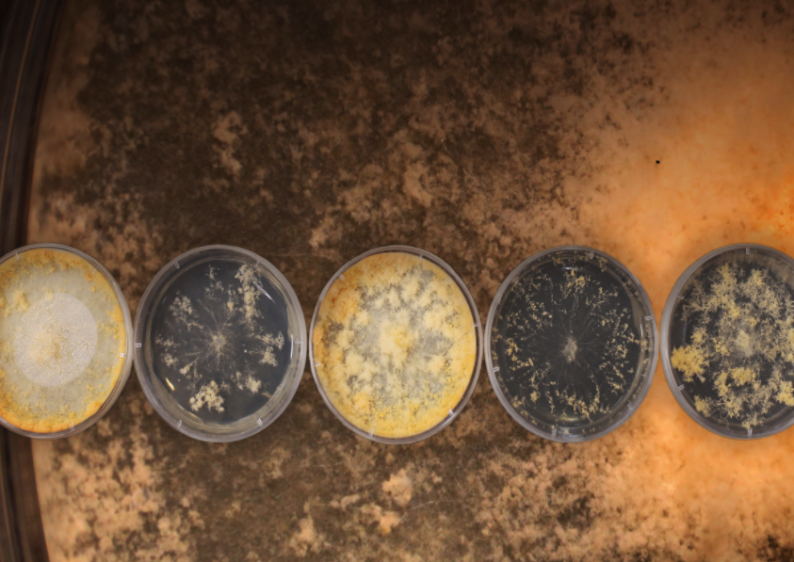Natural systems possess many powerful mechanisms for deconstructing lignocellulosic biomass. In the Biological Lignin Depolymerization Group, we use a variety of techniques and systems to harness this power to improve the conversion of plant biomass to biofuels and biochemicals. We focus on the deconstruction and transformation of lignin, the most complex and recalcitrant portion of the plant cell wall. We leverage expertise in cultivating and analyzing microbiomes, isolating key microorganisms and characterizing enzymes to discover new mechanisms for lignin deconstruction. Our work involves close collaborations with the Feedstocks Division to provide plants with lignin modifications and with the Biofuels and Bioproducts Division to convert depolymerized lignin streams with engineered microbes.
Projects
- Using CRISPR/Cas to edit complex microbial communities for improved lignin deconstruction and substrate utilization
- Rewiring bacterial metabolism to improve the carbon efficiency of lignocellulose conversion to fuels and chemicals
- Studying microbiomes and novel microbial isolates to understand aromatic uptake and conversion
- Characterizing oxidative enzymes involved in lignin depolymerization
- Interrogating anaerobic fungi for novel mechanisms for anaerobic lignin deconstruction
Featured Media
Rachbauer Wins First Place at Bay Area Research SLAM Competition

Engineering Enzyme Secretion in Filamentous Fungi

Featured Publications
- “Spatial Co-transcriptomics Reveals Discrete Stages of the Arbuscular Mycorrhizal Symbiosis.” Nature Plants.
- “Toward a Circular Bioeconomy: Designing Microbes and Polymers for Biodegradation.” ACS Synthetic Biology.
- “Lignin deconstruction by anaerobic fungi.” Nature Microbio
- “Continuous culture of anaerobic fungi enables growth and metabolic flux tuning without use of genetic tools.” Bioresource Technology.
- “The F-box protein gene exo–1 is a target for reverse engineering enzyme hypersecretion in filamentous fungi,” PNAS (2021)
- “A SWEET surprise: Anaerobic fungal sugar transporters and chimeras enhance sugar uptake in yeast,” Metabolic Engineering (2021)
- “Development of dual-inducible duet-expression vectors for tunable gene expression control and CRISPR interference-based gene repression in Pseudomonas putida KT2440,” Microbial Biotechnology (2021)
- “Experimental and theoretical insights into the effects of pH on catalysis of bond-cleavage by the lignin peroxidase isozyme H8 from Phanerochaete chrysosporium,” Biotechnology for Biofuels (2021)
- “Response of Pseudomonas putida to Complex, Aromatic-Rich Fractions from Biomass,” ChemSusChem (2020)
















